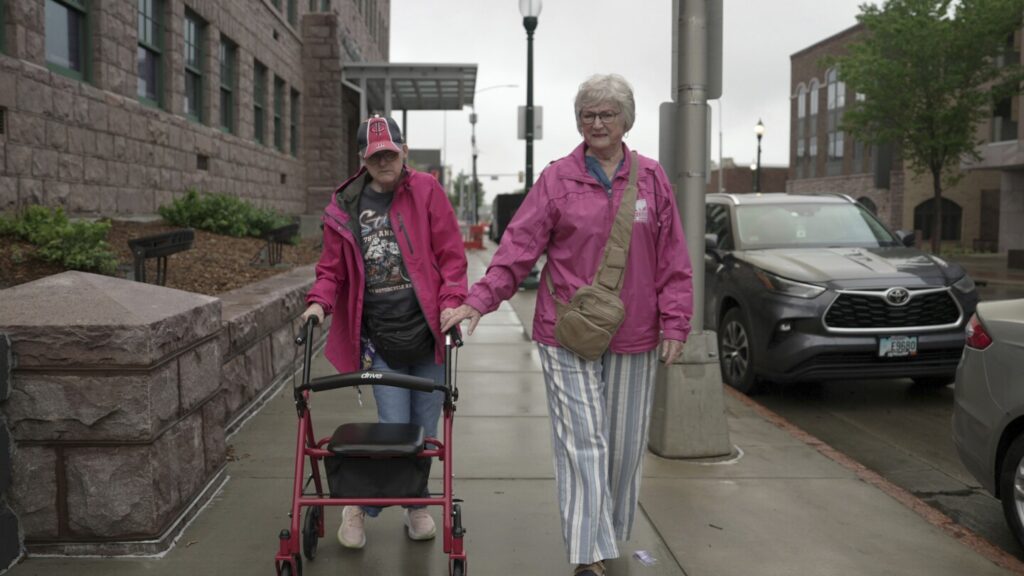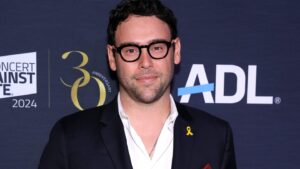
SIOUX FALLS, S.D. — In an era before vaccines became widespread, infectious diseases like measles and rubella claimed the lives of millions and left many children with lifelong health issues. These diseases were so prevalent that nearly one in five children in 1900 did not survive past the age of five. Over the following century, vaccines nearly eradicated these diseases, drastically reducing their toll. However, today, some vaccine-preventable diseases are resurging as vaccine hesitancy grows, lowering immunization rates. This hesitancy is fueled by skepticism, even among public officials, with figures like Robert F. Kennedy Jr., a known anti-vaccine advocate, gaining influence.
“This concern, this hesitancy, these questions about vaccines are a consequence of the great success of the vaccines – because they eliminated the diseases,” said Dr. William Schaffner, an infectious disease expert at Vanderbilt University Medical Center. “If you’re not familiar with the disease, you don’t respect or even fear it. And therefore you don’t value the vaccine.”
Despite overwhelming evidence of vaccine safety, some activists focus on the rare side effects, ignoring the significant risks posed by the diseases themselves. For some Americans, the resurgence of diseases like measles and whooping cough is a painful reminder of personal tragedies and a call to prevent similar suffering in others.
Living with the Legacy of Rubella
Janith Farnham, 80, guides her 60-year-old daughter Jacque through a Sioux Falls art center, sharing a moment over a painting. Jacque, born with congenital rubella syndrome, faces numerous challenges, including hearing impairment and heart defects. Janith contracted rubella early in her pregnancy when no vaccine was available, resulting in a 90% chance of her child being affected.
Janith recalls noticing signs of the syndrome immediately after Jacque’s birth. Despite the challenges, Janith dedicated herself to helping Jacque thrive, utilizing her skills as a special education teacher. Over the years, Jacque developed additional health issues, including diabetes and arthritis, but remains a source of joy and affection for her family.
Reflecting on her family’s experience, Janith expresses frustration at those who choose not to vaccinate their children against measles, mumps, and rubella. “It’s more than frustrating. I mean, I get angry inside,” she said. “I know what can happen, and I just don’t want anybody else to go through this.”
The Cost of Delayed Vaccination
Patricia Tobin vividly remembers the day her sister Karen fell unconscious due to measles. In 1970, despite an available vaccine, it wasn’t mandatory for school attendance in Miami, where they lived. Karen’s doctor recommended vaccination, but their mother delayed, believing there was time. A measles outbreak changed everything, and Karen, a sweet child who loved to sing, succumbed to encephalitis without regaining consciousness.
Today, while vaccination is required for school entry, exemptions for medical, religious, or philosophical reasons are increasingly utilized. Dr. Schaffner notes that the fading memory of measles outbreaks has been exacerbated by a fraudulent study linking the MMR vaccine to autism, leading to decreased vaccination rates.
“I’m very upset by how cavalier people are being about the measles,” Tobin said. “I don’t think that they realize how destructive this is.”
Polio’s Lingering Shadow
Lora Duguay’s early memories include being isolated in a hospital ward, her paralyzed body packed in ice due to polio. Despite initial dire predictions, she defied the odds, walking and even running after intensive therapy. However, in her 40s, she was diagnosed with post-polio syndrome, a condition that progressively worsens.
Today, Duguay finds purpose in art, adapting her practice to her physical limitations. The widespread vaccination against polio in the U.S. has created “herd immunity,” preventing outbreaks and protecting the vulnerable.
Whooping Cough’s Heartbreaking Toll
Katie Van Tornhout lost her daughter Callie Grace to whooping cough at just 37 days old. Born prematurely but healthy, Callie began coughing at a month old. Despite medical attention, she succumbed to the disease, which she contracted from someone who hadn’t received a booster shot.
Van Tornhout now advocates for childhood immunization, sharing her story to prevent similar tragedies. “It’s up to us as adults to protect our children – like, that’s what a parent’s job is,” she said. “I watched my daughter die from something that was preventable … You don’t want to walk in my shoes.”
The resurgence of vaccine-preventable diseases underscores the importance of maintaining high immunization rates. As families continue to share their stories, the hope is to inspire action and prevent further suffering.
The Associated Press Health and Science Department receives support from the Howard Hughes Medical Institute’s Department of Science Education and the Robert Wood Johnson Foundation. The AP is solely responsible for all content.







